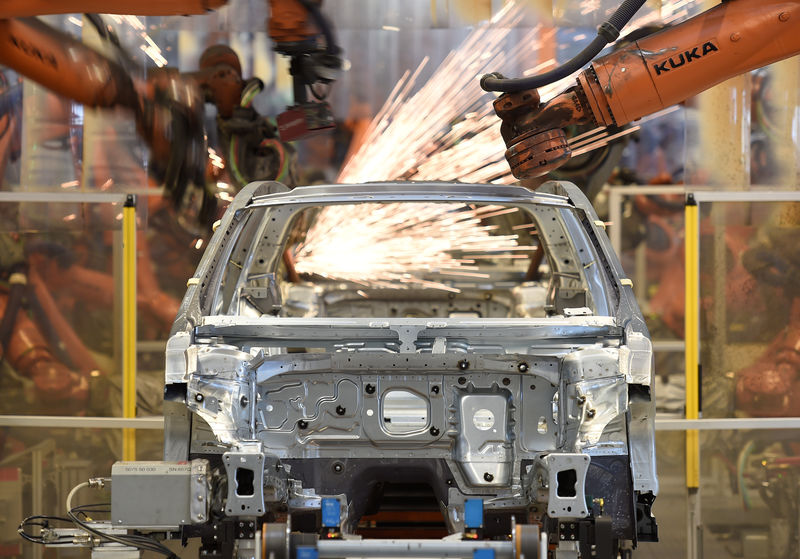Investing.com’s stocks of the week
BRUSSELS (Reuters) - Industrial production in the 19 countries sharing the euro fell by more than expected in April, data showed on Wednesday, providing further evidence that the bloc's economy is slowing before a European Central Bank meeting.
The weak industrial output numbers add to a string of data signaling the euro zone economy is slowing. It also highlights the conundrum facing the ECB on how to exit its large bond- buying program, known as quantitative easing (QE).
Ending the purchases is a given. The key question at the ECB's Thursday meeting is how it will guide markets on the expected path of interest rates.
"The uncertainty about the eurozone's economic performance ahead of QE decision time makes tomorrow's ECB meeting a nail-biter", economists at ING wrote in a note to clients.
Factory output decreased by 0.9 percent in the euro zone in April from March, European statistics office Eurostat said on Wednesday. Production of energy, durable and non-durable goods as well as intermediate goods fell in the month. Analysts polled by Reuters had on average expected a decline of 0.5 percent.
Only the production of capital goods, such as machinery, rose in April.
In other recently published data, retail sales were lower in April. Forward-looking indicators such as economic sentiment also showed a decline last month.
In a separate release, euro zone employment increased by 0.4 percent in the first quarter compared with the final quarter of 2017.
